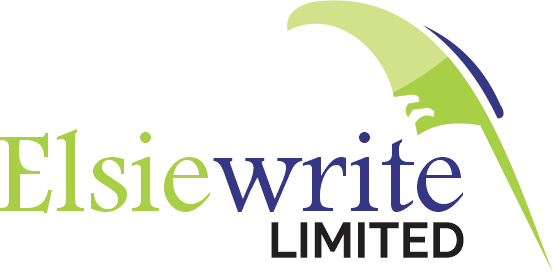Finding a book editor you can trust is a crucial step in bringing your book to life. Whether you’re a first-time author or a seasoned writer, a skilled editor can help you transform your manuscript into a polished, professional product. But choosing the right editor can feel overwhelming—there are many options, and not all editors are created equal. Here’s a comprehensive guide to help you find a trustworthy book editor who understands your vision, respects your voice, and has the expertise to elevate your work.
1. Understand the Different Types of Editing
Before you begin your search, it’s essential to understand the various types of editing. Editing is not a one-size-fits-all process; it involves different stages, each with a distinct purpose and skill set. Knowing the types of editing will help you identify what your book needs and choose an editor with the appropriate expertise.
Types of Editing:
- Developmental Editing: This is the “big-picture” stage of editing. A developmental editor looks at the structure, pacing, plot, character development, and overall flow of your manuscript. They focus on the major elements that make your story compelling and cohesive. Developmental editing is especially helpful in the early stages or if you’re struggling with structure.
- Line Editing: Line editing dives into the language, sentence structure, and flow of your prose. A line editor will help you refine your voice, improve clarity, and ensure each sentence is impactful. This type of editing is ideal for manuscripts that are structurally sound but need stylistic polishing.
- Copyediting: A copy editor focuses on grammar, spelling, punctuation, and consistency. They ensure that your manuscript follows standard language conventions and correct any errors. Copyediting is usually done after developmental and line editing.
- Proofreading: Proofreading is the final stage before publishing. A proofreader checks for minor errors that may have slipped through the previous stages, such as typos and formatting inconsistencies. Proofreading is typically done on the final draft to catch any remaining mistakes.
Understanding which type(s) of editing your manuscript needs will help you narrow down your search and choose an editor who specializes in that area.
2. Set Your Budget
Editing is an investment, and costs can vary widely depending on the type of editing, the editor’s experience, and the length of your manuscript. While a high price doesn’t always guarantee quality, it’s essential to be realistic about the budget you’ll need to get a professional edit.
Considerations for Setting a Budget:
- Quality vs. Cost: Editing can be expensive, but it’s worth investing in a skilled editor. A poorly edited book can negatively impact readers’ perceptions, so try not to cut corners. Remember, this is an investment in your work’s success.
- Determine Your Priorities: If you’re working with a limited budget, prioritize which type of editing you need most. For example, if your story structure is solid, you may only need a line edit or copyedit.
- Research Average Rates: Rates vary depending on the editor’s experience, location, and the type of editing. You can find industry-standard rates through the Editorial Freelancers Association (EFA), Reedsy, and other professional organizations. Having an idea of average costs will help you set realistic expectations.
Setting a budget early will help you identify editors within your price range and allow you to plan for the investment.
3. Look for Editors with Relevant Experience
An editor with experience in your genre is more likely to understand your book’s unique needs and the expectations of your target audience. Look for an editor who has a strong background in editing your type of book, whether it’s a mystery novel, a self-help guide, or a fantasy adventure.
How to Assess Relevant Experience:
- Ask About Their Genre Specialization: When researching editors, check if they mention your genre on their website or profile. A romance editor may not be the best fit for a sci-fi novel, and vice versa.
- Review Their Portfolio: Many editors have portfolios or samples of their previous work available online. If they’ve edited books similar to yours, it’s a good sign they’ll understand your style and the conventions of your genre.
- Request References: Don’t hesitate to ask for references or testimonials from previous clients. Hearing about other authors’ experiences can give you insight into the editor’s strengths, weaknesses, and working style.
Experience matters because it demonstrates that the editor understands your genre’s nuances and can help enhance your manuscript’s appeal to your ideal readers.
4. Evaluate Their Editing Style and Philosophy
Every editor has a unique style and approach to editing, and it’s important to find one that aligns with your vision and goals. Some editors take a more hands-on approach, offering extensive suggestions and revisions, while others prefer to make minimal adjustments, respecting the writer’s voice.
Questions to Consider:
- What’s Their Approach to Editing?: Some editors focus on preserving the author’s voice, while others may suggest more significant changes to improve readability or engagement. Ask potential editors about their approach and see if it matches what you’re looking for.
- How Do They Communicate?: Clear, respectful communication is essential for a successful editor-author relationship. A trustworthy editor will provide constructive feedback without undermining your confidence. They should be open to discussing their suggestions and receptive to your input.
- Request a Sample Edit: Many editors offer sample edits for a small fee or for free on a short excerpt (usually 1,000-2,000 words). A sample edit lets you see how they work with your text and how they approach your specific writing style. It’s an invaluable tool for assessing compatibility.
Choosing an editor who respects your creative vision while providing honest feedback is crucial for a productive and positive editing experience.
5. Research Their Credentials and Track Record
A trustworthy editor will have the credentials and experience to back up their services. While formal education isn’t the only marker of a good editor, qualifications, training, and professional memberships can be good indicators of an editor’s dedication and skill.
How to Verify Credentials and Experience:
- Look for Relevant Education: Many editors have backgrounds in English, journalism, publishing, or related fields. Formal training in editing can be a good sign, but it’s not a requirement. Practical experience and a solid track record are often more telling.
- Check for Professional Memberships: Editors who belong to organizations like the Editorial Freelancers Association (EFA), the Society for Editors and Proofreaders (SfEP), or the American Society of Journalists and Authors (ASJA) may have additional credentials or follow industry standards.
- Review Testimonials and Client Feedback: Look for testimonials from previous clients, either on the editor’s website or through reputable freelancing platforms. Positive feedback from other authors is often a reliable indicator of an editor’s competence and integrity.
Don’t be afraid to ask about an editor’s qualifications, experience, and training. A trustworthy editor will be happy to share their background with you.
6. Conduct Interviews and Ask the Right Questions
Once you’ve narrowed down your list, it’s time to reach out and conduct interviews with potential editors. Asking the right questions will help you get a better sense of whether they’re a good fit for your project.
Questions to Ask Potential Editors:
- What’s Your Experience with Books Like Mine?: Ask about their familiarity with your genre or type of book. Understanding their experience can help you gauge their expertise and compatibility with your project.
- How Do You Approach Constructive Feedback?: Constructive criticism is essential to the editing process, but you want an editor who can deliver feedback in a supportive, respectful manner. Ask about their feedback style to ensure it aligns with your preferences.
- What Are Your Rates and Turnaround Time?: Make sure their rates fit within your budget and that they can meet your timeline. Some editors offer flexible payment plans, so don’t hesitate to ask if you’re working with a limited budget.
- Can You Provide a Sample Edit?: A sample edit allows you to see the editor’s style in action. It’s a great way to assess their skills and determine if you feel comfortable with their approach.
The interview process is an opportunity to establish rapport and ensure that the editor understands your goals and vision for your book.
7. Trust Your Instincts
Finding an editor is part research, part intuition. If you feel comfortable and confident with an editor after your research and discussions, that’s a good sign. Trust is essential in any professional relationship, and if an editor doesn’t feel like the right fit, it’s okay to keep looking.
Signs of a Good Fit:
- They Understand Your Vision: A trustworthy editor will respect your vision while offering helpful suggestions for improvement.
- Clear Communication: Good editors communicate clearly, answer questions promptly, and are transparent about their process and fees.
- Positive Vibes: Sometimes, it’s as simple as feeling a connection. If you feel at ease with an editor, it’s often a sign that you’ll work well together.
Final Thoughts
Finding a book editor you can trust may take time, but the effort is worth it. A skilled, supportive editor can bring out the best in your manuscript and help you create a book you’re proud to share. By understanding the types of editing, setting a budget, evaluating experience, and asking the right questions, you’ll be well on your way to finding a trustworthy editor who can guide you on the path to publication. Remember, the right editor is not just an expert; they’re a collaborator who respects your voice and helps you grow as a writer.

